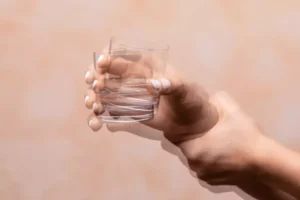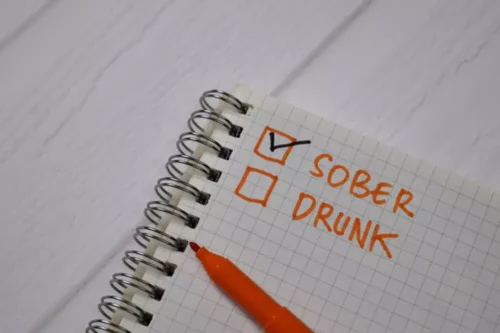
And sometimes, they say they’re drinking to cope with a challenging symptom like insomnia. Having a nightcap to top off your day can seem helpful—at least at first—because alcohol has a way of making you feel calm, drowsy, and at ease. But its effects can backfire as your body moves through its later sleep stages, making you feel tired and sleep-deprived in the long run.
Improve Your Sleep Hygiene
BetterHelp can connect you to an addiction and mental health counselor. If you think you may have a sleep problem or disorder, consider taking our brief sleep quiz to find out. Remember that only a healthcare professional or sleep specialist can diagnose https://ecosoberhouse.com/ a sleep condition. Consuming alcohol and experiencing restricted sleep reduces alertness during the day. Alcohol can increase the quantity of non-REM sleep during the first half of the night, but it decreases REM sleep in the second half.
Get help for alcoholism today.
Any of these possibilities mean that when the person wakes, they aren’t feeling rested. On a day-to-day basis, this doesn’t seem like that pressing of an issue. In the long-term, however, it can be detrimental to one’s mood, energy level, physical and mental health, work performance, and quality of life. If you want to understand why alcohol has a contradictory effect on your sleep cycle, it can help to think about things in terms of sleep stages. Drinking alcohol reduces your sleep onset latency (SOL), or the amount of time it takes to fall asleep.
- Sleep occurs over a sustained period, typically lasting approximately 8 hours inhumans.
- Studies have shown the body is more effective at processing alcohol at certain times of the day than others.
- Then, you can take steps—like cutting back, practicing healthy sleep hygiene, and seeking support if needed—to improve your habits and start feeling better.
- Many who abuse alcohol often do it well into the night and oversleep into the next day.
2 Sex effects in the impact of alcohol and alcoholism on sleep
In summary, moderate doses of alcohol may decrease the amount of REM sleep through the night. In doses mimicking heavy drinking, alcohol may initially improve sleep continuity during the first half of the night. But in the second half of the night, it may lead to fragmented sleep (more awakenings). Further, alcohol may continue to disturb sleep even after the breath alcohol concentration is undetectable. Our finding that those who have trouble falling asleep were more likely to be persistent heavy drinking suggests that they may be using alcohol as a sedative. This is partially corroborated in an earlier study on same population.
- And because alcohol is a sedative, the withdrawal can follow the opposite sort of pattern.
- They can try it a few times and think their sleeping problems are cured.
- Abnormalities in the timing of REM sleep wouldappear to last longer into the abstinence period.
- This is partially corroborated in an earlier study on same population.
‘May’ You Sleep Better for Health and Longevity
Alcohol has been shown to negatively impact sleep, but this comes down to the individual. Ultimately, no two cases of insomnia are the same, and no treatment plan is right for everyone. Anyone experiencing insomnia should speak with a doctor to learn more about what treatments may work best for them. Consuming certain substances, such as alcohol, can disrupt sleep schedules. An uncomfortable sleep environment can make getting a good night’s rest challenging.

Sleep Medicine Physician

FYI, sleep debt is measured against your sleep need — the genetically determined amount of sleep you need. Try breathing exercises and relaxation techniques — like diaphragmatic breathing and progressive muscle relaxation — to help alcohol insomnia calm anxious thoughts. Avoid midnight takeout or anything too greasy or fatty — this may cause problems like acid reflux, further disrupting sleep. Avoid anything with sugar or caffeine that could further disrupt your sleep.
The Best 7 Teas for Sleep
Allowing this time between your last drink and sleep will give your body more time to metabolize the alcohol. While you may still experience effects of alcohol on your sleep, this buffer time may improve their severity. Insomnia from alcohol use is pretty common, and studies have shown that anywhere from 36% to 91% of those who are alcohol dependent will struggle with sleep disturbances or insomnia.
- In a 2018 study, researchers found that alcohol increases this risk by 25%.
- As children grow older and approach adolescence, many of them may experience a shift towards eveningness, a phenomenon seen commonly in boys [11].
- The Whitehall II study was established in 1985 as a longitudinal study to examine the socioeconomic gradient in health and disease among 10,308 civil servants (6895 men and 3413 women)12.
Adverse Effects of Disrupted Sleep
This topographic pattern isconsistent with the known frontal susceptibility to alcoholism-related alterations inbrain structure and function (Zahr et al. 2013;Oscar-Berman et al. 2013). In this population based setting, drinking high volumes of alcohol or drinking hazardously may contribute to the prevalence of sleep problems in older age. Those with disrupted sleep should consider reducing alcohol consumption and people in this age group, particularly men, should be discouraged from using alcohol as a sleep aid. It is well recognized that sleep problems have a significant impact on quality of life with increased morbidity and mortality seen in population studies3. Identifying people at risk of sleep disturbances as a result of their drinking may have important public health benefits. For instance, we used self-reported alcohol consumption data and self-reported sleep data and therefore these measures may be at risk of reporting bias.

2 Neurochemistry of alcoholism effects



